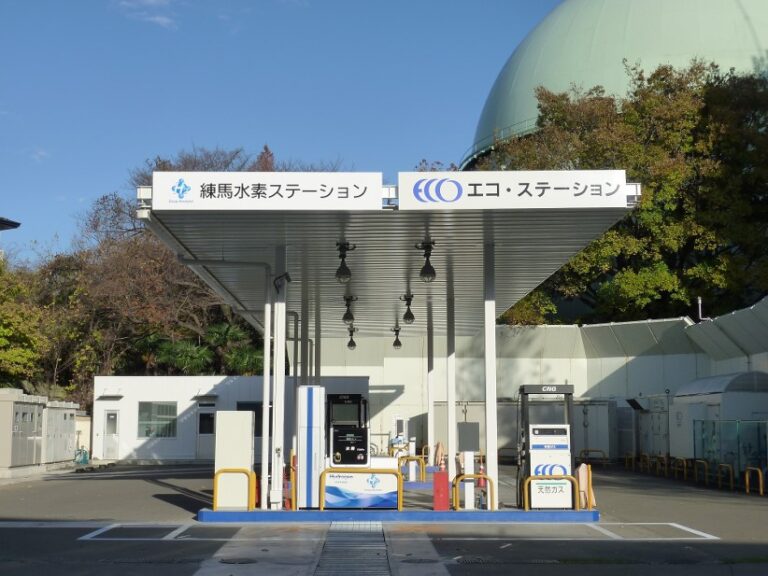In Japan, Toyota Motor Corporation, Nissan Motor Co., Ltd., and Honda Motor Co., Ltd. have agreed on key details regarding a new joint support project for the development of hydrogen station infrastructure. In addition to partially covering the operating costs of hydrogen stations, the three automakers have also agreed to help infrastructure companies deliver the best possible customer service and create a convenient, hassle-free refueling network for owners of fuel cell vehicles (FCVs).
The joint project (conducted alongside the Japanese government’s support for hydrogen stations) will partially cover hydrogen station operating expenses incurred by infrastructure companies, and was first announced on February 12. Furthermore project partners will jointly raise awareness regarding these support measures, in order to encourage new companies to enter the hydrogen supply business. Financial assistance will be provided through the Research Association of Hydrogen Supply/Utilization Technology* (HySUT), which is setting up a project to stimulate demand for FCVs.
Furthermore, to help popularize FCVs by creating a reliable hydrogen fueling environment and ensuring peace of mind for FCV owners, the three automakers will work with infrastructure companies to take the following steps:
- Using information such as customer needs and hydrogen station operating rates to improve customer service levels
- Improving the convenience of hydrogen stations by increasing the number of days they are open, extending their business hours, enhancing and providing operational information, and developing hydrogen station infrastructure that is easy to access
- Raising public awareness about FCVs and hydrogen
Background
For FCVs to gain popularity, creating attractive products is only half of the equation. Hydrogen station infrastructure must also be developed to ensure ease-of-use for customers; however, infrastructure companies face difficulties constructing and operating hydrogen stations. FCVs are a new entry into the market, and hydrogen station revenues are expected to remain low due to the limited number of cars currently on the road.
In June 2014, the Japanese government unveiled its Strategic Road Map for Hydrogen and Fuel Cells, which involves subsidizing the construction of hydrogen stations and reviewing regulations. Furthermore, in February, the Japanese government decided to partially subsidize hydrogen station operational expenses in order to help stimulate new demand for FCVs. In such ways, the Japanese government continues to contribute to the development of hydrogen station infrastructure.
Meanwhile, Toyota launched the Mirai FCV in late 2014, while Honda has announced its plan to bring an FCV to market before April 2016 and Nissan is also planning to market an FCV as early as 2017.
Through this project, the three automakers plan to steadily support hydrogen station infrastructure from a medium-term perspective, until FCVs become well established in the market and the development of hydrogen station infrastructure is well underway (potentially around 2020).
*Established in July 2009 based on the Act on Research and Development Partnership concerning Mining and Manufacturing Technology, with the goal of building hydrogen supply infrastructure and developing a business environment conducive to widespread use of FCVs by 2015. There are currently 19 member companies/organizations, including energy infrastructure companies as well as automakers.






